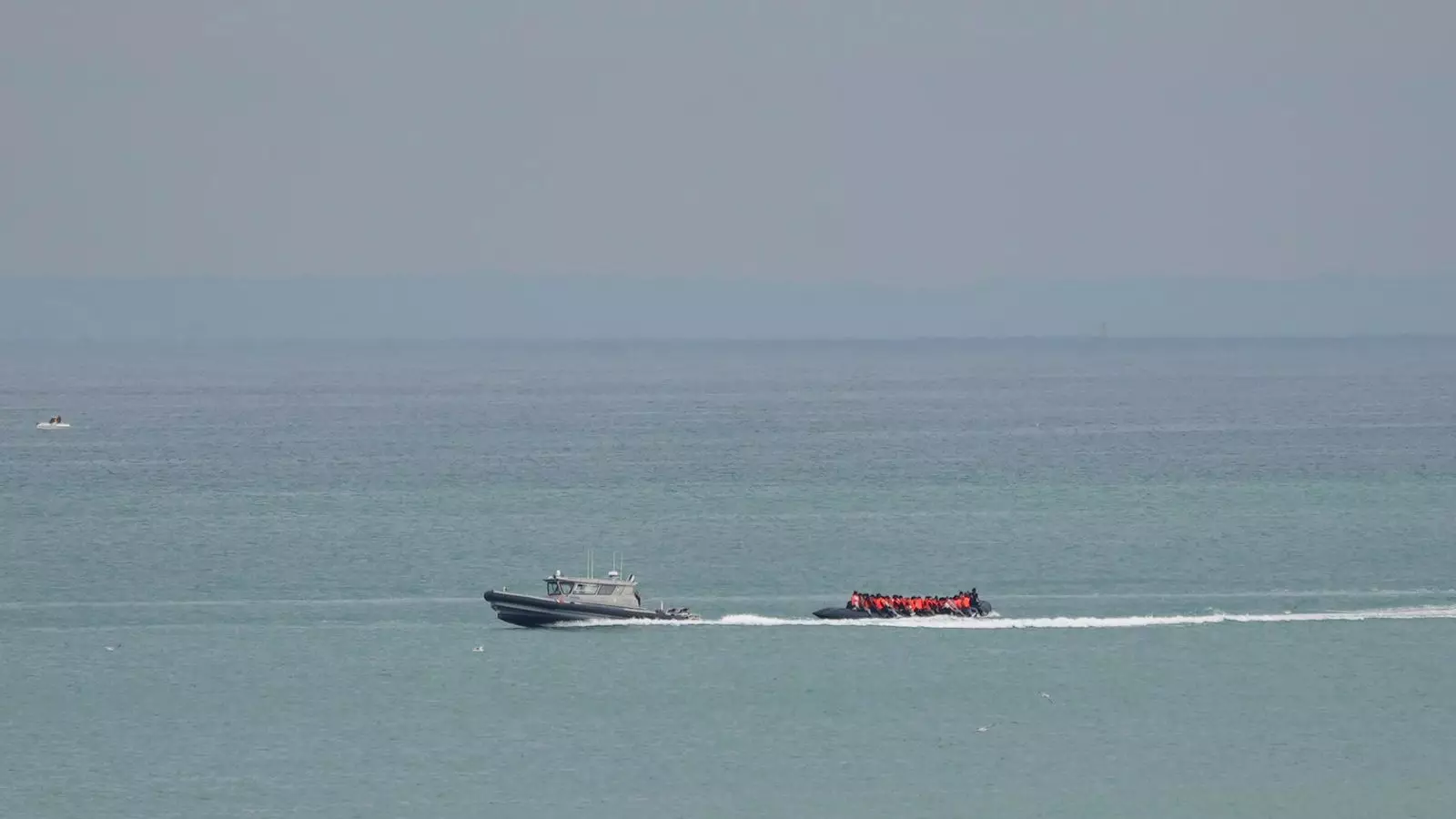The perilous journey across the English Channel has claimed more innocent lives, as confirmed reports indicate that at least eight migrants perished while attempting to reach the shores of the United Kingdom. French officials disclosed that these tragic fatalities took place overnight near Ambleteuse in the Pas-de-Calais region. In the wake of this tragedy, approximately 45 survivors were rescued, underscoring the ongoing humanitarian crisis that has been unfolding as migrants opt for increasingly dangerous sea routes to escape dire situations.
This incident is not isolated; it represents a troubling trend. In a rapid response to the situation, a rescue vessel was deployed after a distressed boat was spotted by the beach in Ambleteuse. The timing of these rescues is chilling, as hundreds of lives were saved in a flurry of maritime operations carried out by French authorities. Over a single day, around 200 people were rescued from various locations along the French coast, including some who had been attempting to cross the channel aboard a poorly constructed vessel found off Le Portel, a coastal town. Amidst the ruins of hope that these crossings often symbolize, it’s clear that this cycle of peril continues without any substantial interruption.
The Rise in Migrant Crossings and Systemic Failures
French authorities reported monitoring 18 separate attempts to launch boats across the Channel in a single day. These high numbers illuminate the desperate conditions that drive individuals to risk their lives at sea. Government officials have acknowledged that this issue is not merely a logistical problem but rather a humanitarian crisis exacerbated by systemic failures to provide safe migration routes.
Recent commentary from key figures paints a grim picture of the situation. David Lammy, the UK’s Foreign Secretary, expressed his profound dismay over the loss of life, acknowledging a stark reality regarding the makeshift rafts and dinghies that migrants rely on. His visit to the National Crime Agency revealed the grim realities faced by those fleeing conflict and persecution who often find themselves at the mercy of unscrupulous trafficking gangs. Moreover, there is a growing acknowledgment that political rhetoric focused solely on dismantling these illicit networks may not be enough to prevent further tragedies.
Human rights advocates vehemently criticize the government’s approach. Steve Valdez-Symonds of Amnesty International UK characterized this latest incident as yet another “appalling and avoidable tragedy.” His commentary highlighted a vital point: the continued refusal to establish safer legal routes for asylum seekers perpetuates the cycle of danger that individuals face while undertaking these crossings. The grim truth is that the desperation of fleeing individuals has become a commodity exploited by human smugglers who offer perilous methods as the only option.
The Broader Implications of Migration Policies
As the landscape of migration continues to evolve, the consequences of a security-heavy approach become increasingly evident. The fatalities recorded earlier this month add to a harrowing statistic—over 30 lives lost attempting to traverse the English Channel this year alone. Such statistics illuminate the question of moral and ethical responsibility for nations involved in the migration discourse.
Critics argue that countries like the UK and France need to shift their focus from punitive and reactive measures towards a more compassionate strategy that seeks to address the root causes of migration while also safeguarding lives. This would involve fostering collaboration among European nations to create a coordinated response aimed at developing safe and legal pathways for those seeking refuge.
The continued loss of life in these tragic crossings serves as a somber reminder of the urgent need to reevaluate and rehumanize migration policies. Until tangible changes take place, it is likely that stories like that of the eight lives lost off Ambleteuse will tragically repeat, echoing the desperate choices faced by many fleeing violence, persecution, and despair. In this era of globalization, where the plight of refugees and asylum seekers is becoming an increasingly pressing issue, a compassionate and cooperative approach is necessary to prevent such tragedies from reoccurring.


Leave a Reply